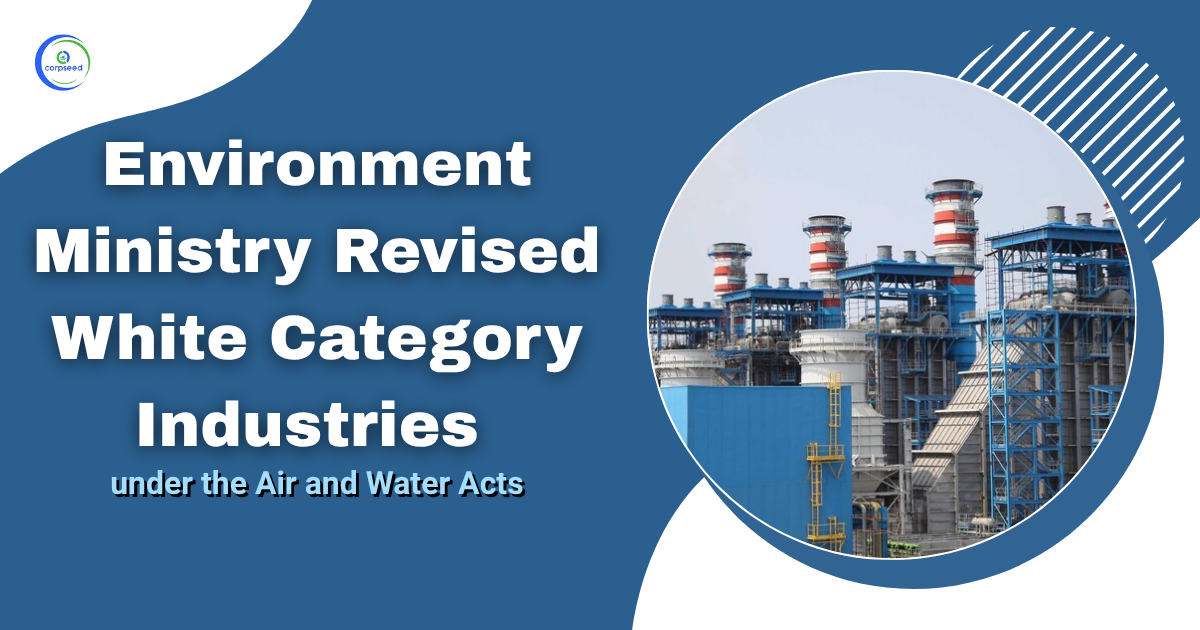Air Navigation Service Provider (ANSP) or Air Traffic Service Provider (ATSP)
Introduction of ANSP
An Air Navigation Service Provider (ANSP) is an organization that operates aircraft in flight or in the maneuvering region of a plane and is the legal owner of that authority. An ANSP may provide one or more of the following services to airspace users, depending on the specific mandate.
- Air Traffic Management (ATM)
- Communication navigation and surveillance systems (CNS)
- Meteorological service for air navigation (MET)
- Search and rescue (SAR)
- Aeronautical information services/aeronautical information management (AIS/AIM).
Air traffic receives these services at all times during operations (approach, aerodrome, and en-route).
A person who does not hold an Air Navigation Service Providers (ANSP) certificate granted by the Authority is not permitted to perform air navigation services.
Airport Authority of India is responsible for providing ANSP certificates. The DGCA is the Government of India's official agency for formulating regulations, processes, and giving instructions concerning aeronautical telecommunication infrastructure. It is part of the Ministry of Civil Aviation. Air Navigation Service Providers (ANSPs), airlines, and airports are all required to follow their directions. The information about regulatory requirements like civil Aviation Requirements (CARs) etc. about the Aeronautical Telecommunication facilities i.e., CNS/ATM Automation facilities) in India’s available on DCGA website dg ca.nic.in.
In compliance with ICAO Standards and Recommended Practices, it offers Air Traffic Services across Indian airspace and adjacent maritime areas. Airspace sectorization, upper airspace harmonization, and complete Air Traffic Management (ATM) automation of all airports with conflict management and decision-making tools for controllers have all been proposed and are in various phases of development. This will result in more flexible and dynamic airspace management, allowing for the safe and efficient flow of en-route traffic. According to the AAI's plan and the ICAO's Regional Plan, new CNS/ATM systems will be adopted on a priority basis in the near future. These will ensure that India's airspace is completely covered. For cooperative airspace monitoring in India, there will be more civil-military cooperation. To provide uniformity in air-traffic control services at civilian and defense airports, the integration of civil/military air traffic services will be established. In order to achieve the highest level of air safety, the unidirectional air corridor concept will be implemented in close coordination with the Defense authorities whenever traffic justifies it.
Radars and other navigational aids available to civil and military airport authorities will be used to their full potential, boosting overall route navigation and surveillance capabilities. A Central Control Unit will be established very soon to monitor all domestic flights from a security standpoint. Air traffic control equipment may be installed by AAI or the concerned airport operator in airports that are currently owned or operated by AAI. AAI will normally provide air traffic control (ATC) services, with the exception of approach and aerodrome control, which may be done by licensed ATCs hired by airport operators.
The Directorate General of Civil Aviation is authorized to give and renew various categories of Air Traffic Controller licenses and ratings, according to Rule 95 of the Aircraft Rules 1937. Part XII and Schedule III of the Aircraft Rules, 1937, specify the requirements for the issuance of Air Traffic Controller licenses and ratings. In general, a candidate for a license should meet the standards in terms of age, educational qualifications, and medical fitness, as well as passing the required examinations and having relevant Air Traffic Service experience.
The Director-General of Civil Aviation (DGCA), through its ATCO Licensing Division, issues an Air Traffic Controller's License inappropriate category to applicants who meet the prerequisites. The requirements and procedures for obtaining an Air Traffic Controller's license and ratings are outlined in this Civil Aviation Requirement.
The provisions of Rule 133A and Rule 95 of the 1937 Aircraft Rules apply to this Civil Aviation Requirement (CAR).
Applicability
The Air Traffic Controllers (ATCOs) who provide Air Traffic Services in India are governed by this CAR.
When the holder of an air traffic controller license and related ratings is aware of a reduction in their medical fitness that could render them unable to safely and correctly exercise these privileges, they must not exercise those rights. The ATS provider must ensure that no air traffic controller is allowed to exercise the privileges of any rating unless he meets the competency, regency, medical fitness, and English language standards. Language proficiency as defined by the Aircraft Rules of 1937 and subsequent regulations. A student air traffic controller's license is not necessary for an air traffic controller's license holder who is undertaking on-the-job training in an ATS unit in order to gain additional ratings. OJT for obtaining new ratings or revalidation of old ratings for an ATC unit for which he has successfully completed approved initial training from an Approved ATS Training Organization is permitted with a valid ATCO license, even if the rating has lapsed. The air traffic controller's license must be kept by the person to whom it was issued and made available for inspection by the DGCA.
Issuance of Air Traffic Controller License (ATCOL)
- Application for the issue of an ATC license must be submitted online through https://bharatkosh.gov.in in the format specified in Appendix-1 to this CAR, along with the required fee as specified in Rule 99 of the Aircraft Rules 1937.
- The application for the issuance of an ATCOL must be verified by the Head of the ATS Unit, which is responsible for providing air traffic services.
- The application described in paragraph 4.2 must be submitted to the DGCA via the ANSP's nodal point of contact.
- Applications for ATCOL must include the enclosures listed in Appendix 1 of this CAR.
- An applicant for an Air Traffic Controller's License must meet all of the appropriate age, qualification, medical standards, knowledge, experience, training, and skill requirements as outlined in Part XII and Schedule III of the Aircraft Rules 1937.
Renewal of Air Traffic Controller License (ATCOL)
- Application for renewal of ATC and ATCO licenses must be submitted online through https://bharatkosh.gov.in in the way described in Appendix-1 to this CAR, together with the required fee as specified in Rule 99 of the 1937 Aircraft Rules.
- The application for the provision of an ATCOL should be verified by the Head of the ATS Unit, which is responsible for providing air traffic services.
- The application referred to in paragraph 5.2 was filed to the DGCA through the ANSP's nodal point of contact.
- The enclosures listed in Appendix 1 of this CAR should be submitted with the ATCOL renewal application.
- A license for an air traffic controller is valid for a maximum of five years from the date of issue and may be renewed for another five years on each occasion.
- The validity period of a license begins on the date of issuance.
- In the case of renewal, the term of validity will begin on the day following the expiry of the previous validity, regardless of the date of renewal, provided the renewal application is submitted within thirty days of the expiry date and all renewal conditions are completed on the date of application.
- In all other cases, the renewal license's validity begins on the day of renewal.
- If the license or rating has expired on the date of application for renewal, the applicant shall complete on-the-job training and pass the examinations and skill assessment tests that the Director-General may specify in order to assess the applicant's competency to hold that license or rating.
- An applicant for an Air Traffic Controller's License renewal shall meet all of the renewal requirements outlined in Part XII and Schedule III of the 1937 Aircraft Rules.
- ATC License renewal applications shall be submitted at least 30 days in advance.
Documents Required
- Photocopy of class Xth certificate of a recognized Board or its equivalent or the Birth Certificate issued by a Municipal Corporation or Committee as proof of age.
- Photocopy of Certificate of educational qualification.
- Photo Copy of the approved courses undergone 9as applicable).
- Photocopy of Student ATCO License (for issuance of ATCO License).
- Documentary proof of Examination/OJT/Result of assessment
- Recency Certificate issued by ANSP.
- Photocopy of ELP Certificate.
- Photocopy of class 3 medical assessment.
- Photocopy of receipt of the fee paid through Bharatkosh.
- Original ATCO License (in case of endorsement of Rating or Renewal of ATCO License)
- Any other document
Endorsement of ATC Ratings on ATCOL
- Application for the endorsement of ATC ratings on ATCOL as specified in Rule 95 of the Aircraft Rules 1937 shall be submitted in the prescribed format as set forth in Appendix-1 to this CAR, along with the required fee as set forth in Rule 99 of the Aircraft Rules 1937, via https://bharatkosh.gov.in.
- The application for the endorsement of ATC ratings on ATCOL should be verified by the Head of the ATS Unit, who is responsible for providing air traffic services.
- Application submitted to DGCA via ANSP's nodal point of contact as specified in para 6.2.
- Applications for ATCOL renewal should include the attachments listed in Appendix 1 of this CAR.
- Except in the situation of first rating, the endorsement shall be done on the previously issued ATCOL.
- An applicant for ATCOL endorsement of ATC ratings shall meet all of the standards for rating endorsement as outlined in Part XII and Schedule III of the Aircraft Rules 1937.
Submission of Application
All applications must be sent to the DGCA at the following address, fully completed in every manner:
Director-General of Civil Aviation
Kind attn: Director of Operations
ATCO Licensing Division,
Directorate of Airspace and ANS Standards
Technical Centre, Opposite Safdarjung Airport,
New Delhi – 110003, India.
Read Also: DGFT License
This portion of the site is for informational purposes only. The content is not legal advice. The statements and opinions are the expression of author, not corpseed, and have not been evaluated by corpseed for accuracy, completeness, or changes in the law.
BOOK A FREE CONSULTATION
Get help from an experienced legal adviser. Schedule your consultation at a time that works for you and it's absolutely FREE.
_or_Air_Traffic_Service_Provider_(ATSP)-corpseed.png)








